This article was medically reviewed by Daniel Barrett, MD and by wikiHow staff writer, Hannah Madden. Dr. Daniel Barrett is a Board Certified Plastic Surgeon and the owner of Barrett Plastic Surgery based in Beverly Hills, California. With over six years of plastic surgery experience, Dr. Barrett specializes in aesthetic and reconstructive surgery of the face, nose and body. He has developed detailed scar management protocols and closure techniques to reduce the appearance of scars for his patients. Dr. Barrett obtained a BS from James Madison University and an MD along with an MS in Physiology and and an MHA (Masters of Health Administration) from the Medical College of Virginia in Richmond.
There are 10 references cited in this article, which can be found at the bottom of the page.
This article has been viewed 15,444 times.
Breast augmentation is a common procedure, but it can take over a month to fully recover. If you are planning on having a breast augmentation or you have just had one, you may be wondering how to sleep without hurting your surgery site. Try to sleep in a reclined position and avoid caffeine and alcohol to stay well-rested as you recover from this surgery.
Steps
Relieving Pressure on Your Breasts
-
1Sleep while reclined for the first 2 weeks after surgery. Sitting up to sleep will reduce the pressure on your breasts and keep them in a natural position. It will also increase circulation to your breasts which will promote healing. This is especially important right after you have your surgery.[1]
- You can use a recliner, a bed that has reclined settings, or pillows to prop yourself up.
-
2Sleep on your back for 6 weeks to reduce pressure on your breasts. If you have been sleeping on your side or stomach, flip over to your back. Your breasts should not have pressure put on them while you sleep after an augmentation.[2]
- If you are not used to sleeping on your back, it may take some practice to fall asleep.
Advertisement -
3Put a pillow under your back or knees for extra support. As you sleep on your back, you may find it puts pressure on your lower back. Add a pillow under your back or your knees to give yourself relief as you sleep in a new position.
- You can also use a foam wedge to put underneath your back or knees.
-
4Avoid sleeping on your sides or stomach until 6 weeks after your surgery. Putting unnecessary weight or strain on your breasts right after surgery can cause them to droop or heal more slowly. Wait until at least 6 weeks after you’ve had your surgery to start sleeping on your stomach or sides.[3]
- If your surgeon recommends you wait longer, follow their advice.
Making Sleep Easier
-
1Have extra sheets nearby so you can change them out. You’ll be laying in bed more often as you heal from your breast augmentation, and you might not have the energy to wash your sheets. Keep some clean ones near your bed so that you can change them out when they get dirty.[4]
- Your breasts may also produce discharge as they heal, which could get your sheets dirty.
-
2Avoid sleep disruptors like caffeine, sugar, and alcohol. Rest is the most important part of the healing process. If you can’t sleep, your body will take longer to heal itself. Things that disrupt your body’s natural sleep pattern will make it harder for you to fall asleep and stay asleep.[5]
- You should never combine alcohol and pain medication.
-
3Walk around throughout the day to tire yourself out. It can be hard to sleep if you’ve been laying in bed all day. Try to spend about 30 minutes walking around or moving your body so that you get tired.[6]
- Walking also helps you avoid stiffness and blood clots, improving your blood flow and the healing proces.[7]
Tip: Avoid heavy lifting for the first 2 weeks after you have your surgery.
-
4Keep your bedroom at a comfortable temperature. As you heal from your surgery, it is important to create a comfortable environment to sleep in. Keep your room between 60 °F (16 °C) and 67 °F (19 °C) to stay cool while you are asleep.[8]
- You may need to adjust your thermostat as you find what temperature works best for you.
-
5Wear loose-fitting, comfortable T-shirts to sleep in. Your breasts may be tender or sore as they heal from surgery. Find tops that are not form-fitting and don’t restrict your movement so that you are comfortable as you sleep.[9]
- Wear your surgical bra for 6 to 8 weeks after your surgery, or however long your surgeon recommends.
-
6Take your pain medication shortly before you go to sleep. Sleeping while in pain is an almost impossible task. If you’ve been prescribed pain medication, take 1 dose about 30 minutes before you go to bed so that you can sleep comfortably and pain free.[10]
- If you are in pain and your medication is not working, talk to your doctor about switching up your prescription.
- Ask your doctor to prescribe muscle relaxants for you as well if you are experiencing muscle spasms. This is common with implants that are under the pectoral muscle.
Warnings
- Never take sleeping pills along with a narcotic pain medication![11]⧼thumbs_response⧽
- If you use heating pads or ice packs, be careful. The sensation in your skin may be different after surgery. Don’t keep them on for more than 15 minutes at a time and never fall asleep with them on. You may end up with frostbite or burns.[12]⧼thumbs_response⧽
References
- ↑ https://www.youtube.com/watch?v=nVWx1Io6Ayw&feature=youtu.be&t=22
- ↑ https://ariamedtour.com/blogs/sleeping-after-breast-augmentation/
- ↑ https://ariamedtour.com/blogs/sleeping-after-breast-augmentation/
- ↑ https://www.nuffieldhealth.com/article/patients-tips-and-hints-after-breast-augmentation
- ↑ https://www.youtube.com/watch?v=SayNNwcdIik&feature=youtu.be&t=31
- ↑ https://ariamedtour.com/blogs/breast-augmentation-recovery-guide/
- ↑ Daniel Barrett, MD. Board Certified Plastic Surgeon. Expert Interview. 23 July 2020.
- ↑ https://www.sleep.org/articles/temperature-for-sleep/
- ↑ https://www.nuffieldhealth.com/article/patients-tips-and-hints-after-breast-augmentation
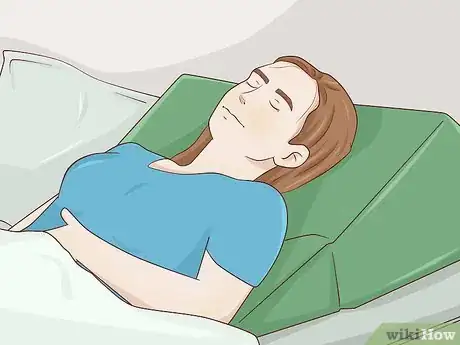
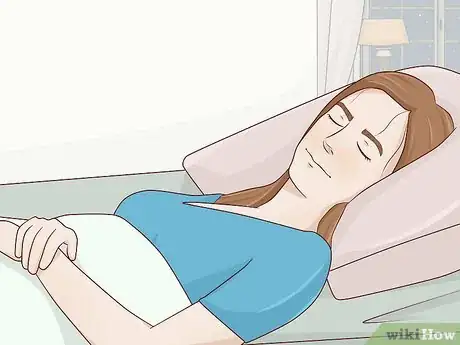
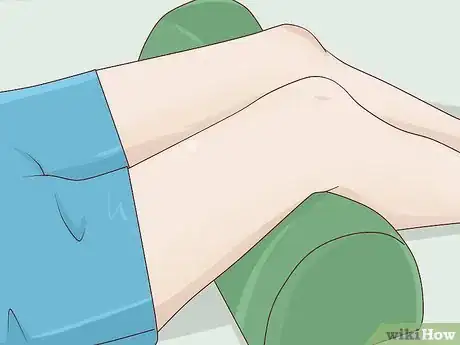
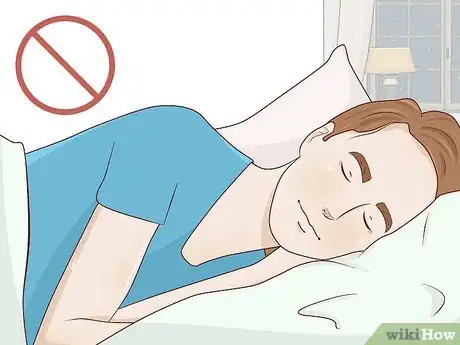
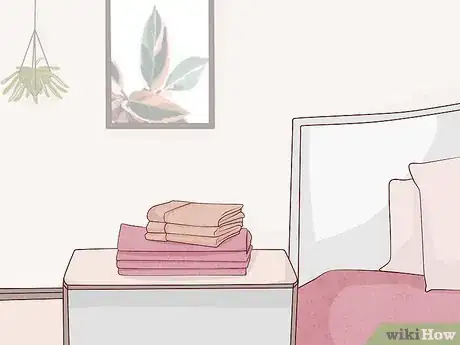





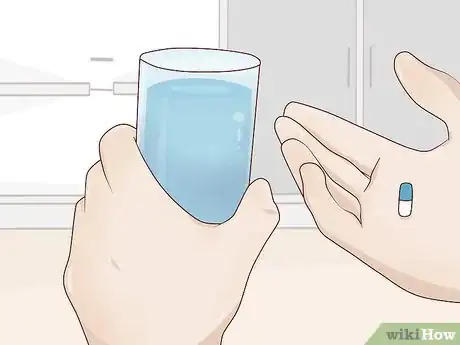






















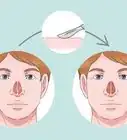




































Medical Disclaimer
The content of this article is not intended to be a substitute for professional medical advice, examination, diagnosis, or treatment. You should always contact your doctor or other qualified healthcare professional before starting, changing, or stopping any kind of health treatment.
Read More...